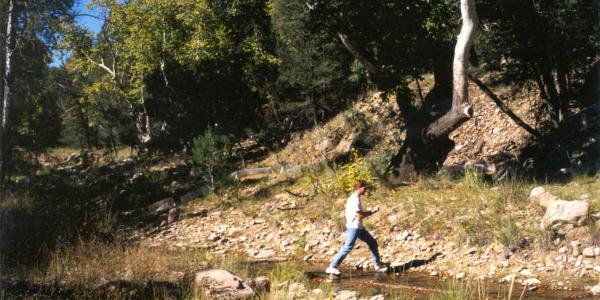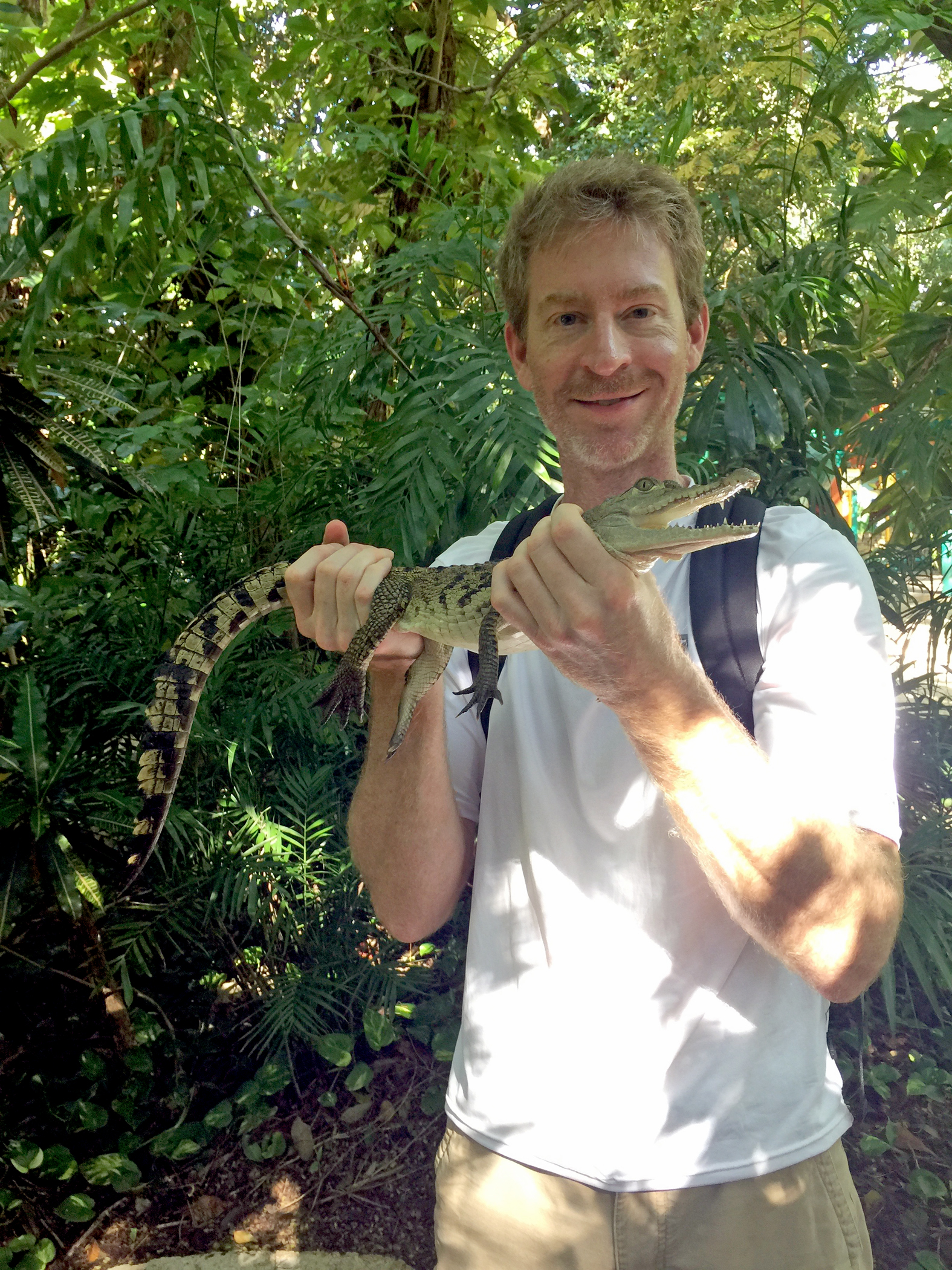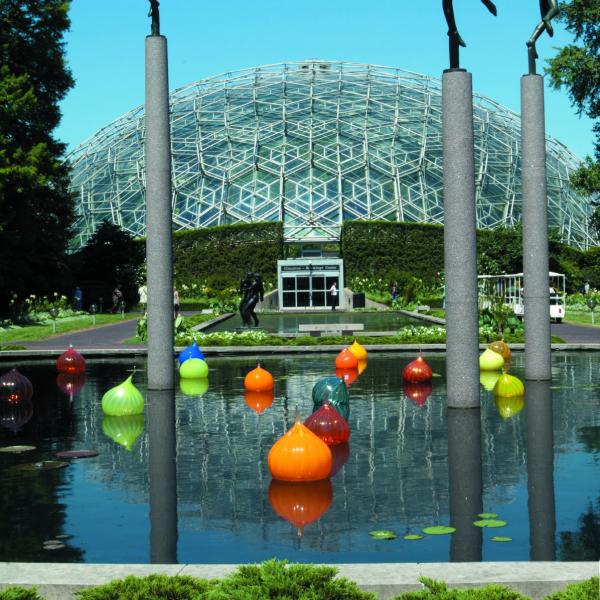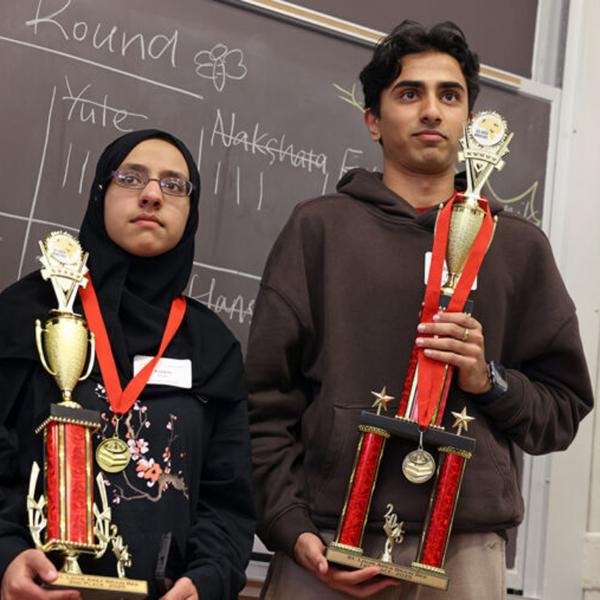Instructor Mark Manteuffel talks about his love of teaching and ecology.
Mark Manteuffel grew up in Louisville, Kentucky, completing his undergrad degree at the University of Louisville. One of his undergrad projects included a broad survey across the state for reptiles and amphibians, followed by a similar survey in Florida and Arizona during graduate school. He completed his PhD at the University of Miami, a strong member of the Organization for Tropical Studies (OTS), where he received funding to conduct a pilot study on small mammal responses to habitat fragmentation in cloud rainforest fragments in Costa Rica. He is currently investigating how reptile species assemblages respond to the combined microclimatic and microhabitat effects of altered habitat structure and concomitant microclimatic conditions in Panama.
Professor Jay Savage at the University of Miami sparked Manteuffel’s interest in herpetology. He was studying small mammals at the time, but found that by using lizards as a model organism, he could address a multifaceted research approach looking at population dynamics and behavioral aspects across the landscape. He was able to develop a mechanistic understanding of the processes that were taking place.
Manteuffel has taught at the University of Arizona, Columbia University, Webster University, St. Louis Community College, and WashU, where since 2003 he has developed and taught courses in the Master of Arts in Biology program, Master of Science in Biology for Teachers program with the Institute for School Partnership, the Bachelor of Science in Sustainability program, the Prison Education Program, the Accelerated Track program, and the Pre-College High School program, among others.
“I’m really interested in how people learn, so I focus on inquiry-based learning processes. I discovered that I absolutely love teaching when I started teaching ecology at University College (WashU’s School of Continuing & Professional Studies). I felt like I could make a large impact by bringing my research experience into teaching others, especially teaching teachers who will go on to share what they have learned with their students.”
“Along the way, I was offered a very attractive position at St. Louis Community College. What better service to do than to reach out to the community through teaching?! Several years into the position, I initiated turning a former baseball field into a sustainable, organic ecogarden and established a tall grass prairie, created butterfly gardens and habitat for ground dwelling bees within the area. I trained and guided students to create the habitats, partnering with Forest Releaf to plant native trees and shrubs around the garden and prairie, along with planting and organically growing a large variety of heirloom vegetables. We had pollinators supporting the garden (pollination services), and we supported the pollinators by providing habitats: the tall grass prairie, butterfly gardens, and bee habitat. I used it as an outdoor learning lab, and we donated a tremendous variety of heirloom vegetables to local food pantries,” Manteuffel said.
Now, Manteuffel has taken on the Experimental Ecology Lab (Bio 4193) at WashU, a course for undergrads that provides hands-on authentic learning experiences at the Missouri Botanical Garden’s Shaw Nature Reserve. Shaw has a variety of habitats (glades, prairie, wetlands, savanna, bottomland forest, upland forest) and numerous species, providing an ideal location for conducting field classes.
“This year, students are learning about fire management, fire ecology, and sampling methodologies in both burned and unburned prairie. They also survey the wetlands, where we are building a database of species that Shaw Nature Reserve can use to inform restoration efforts. We're gathering that data and doing different mini-experiments, as well as ongoing survey and monitoring efforts. This ties in the application of field ecology to habitat restoration and species conservation. I'm hoping to find some new local site records of some of the amphibian species that haven’t been surveyed yet,” Manteuffel explained.
Alongside the Experimental Ecology Lab, Manteuffel has also taught Intro to Ecology, Nutrition, Conservation Biology and Biodiversity, Urban Agriculture and Sustainable Food Systems, Environmental Studies, and Environmental Science. Outside of teaching, Manteuffel considers himself a lifelong learner. He has explored meditation, mindfulness, crafting and selling jewelry, and teaches yoga and Pilates.






